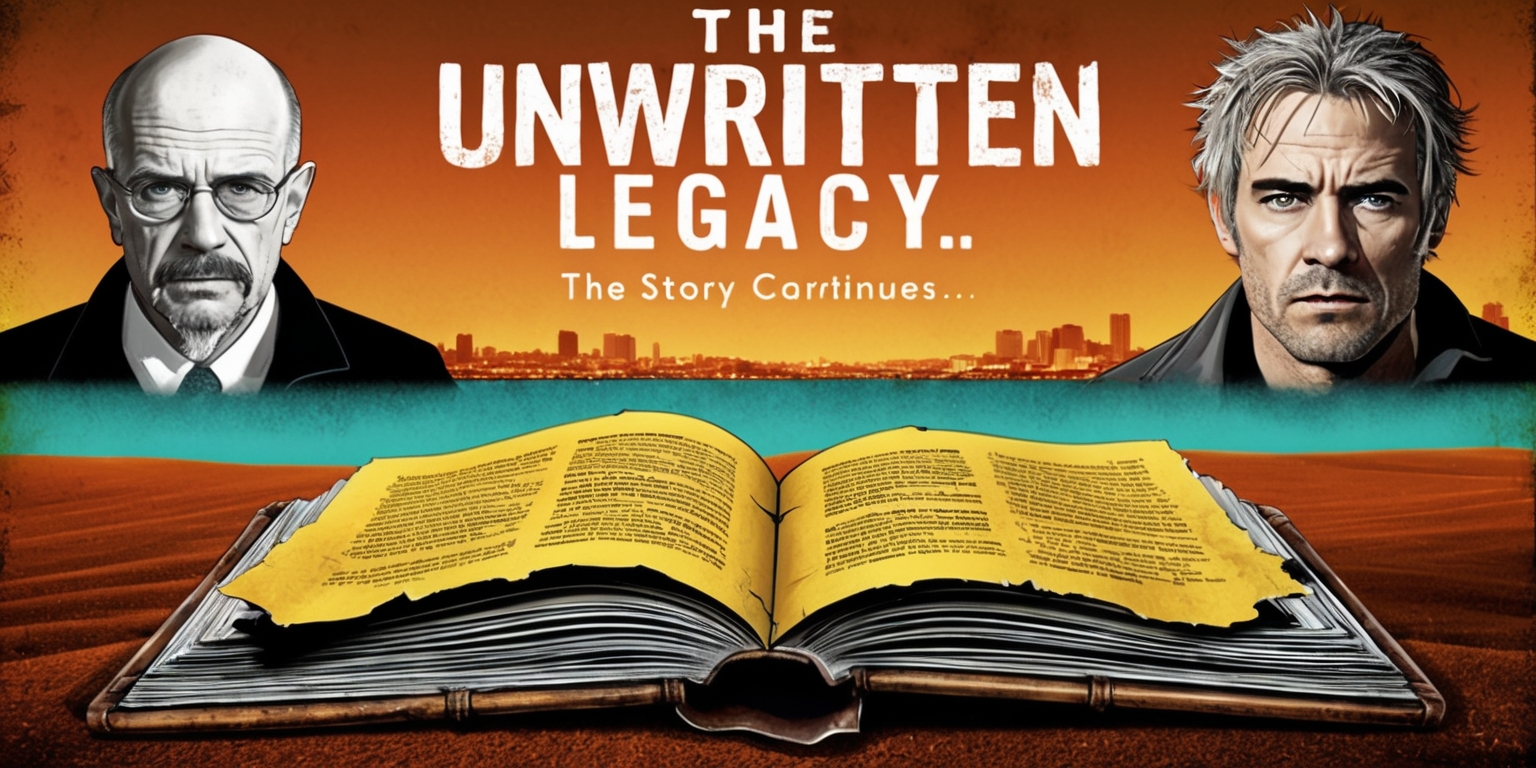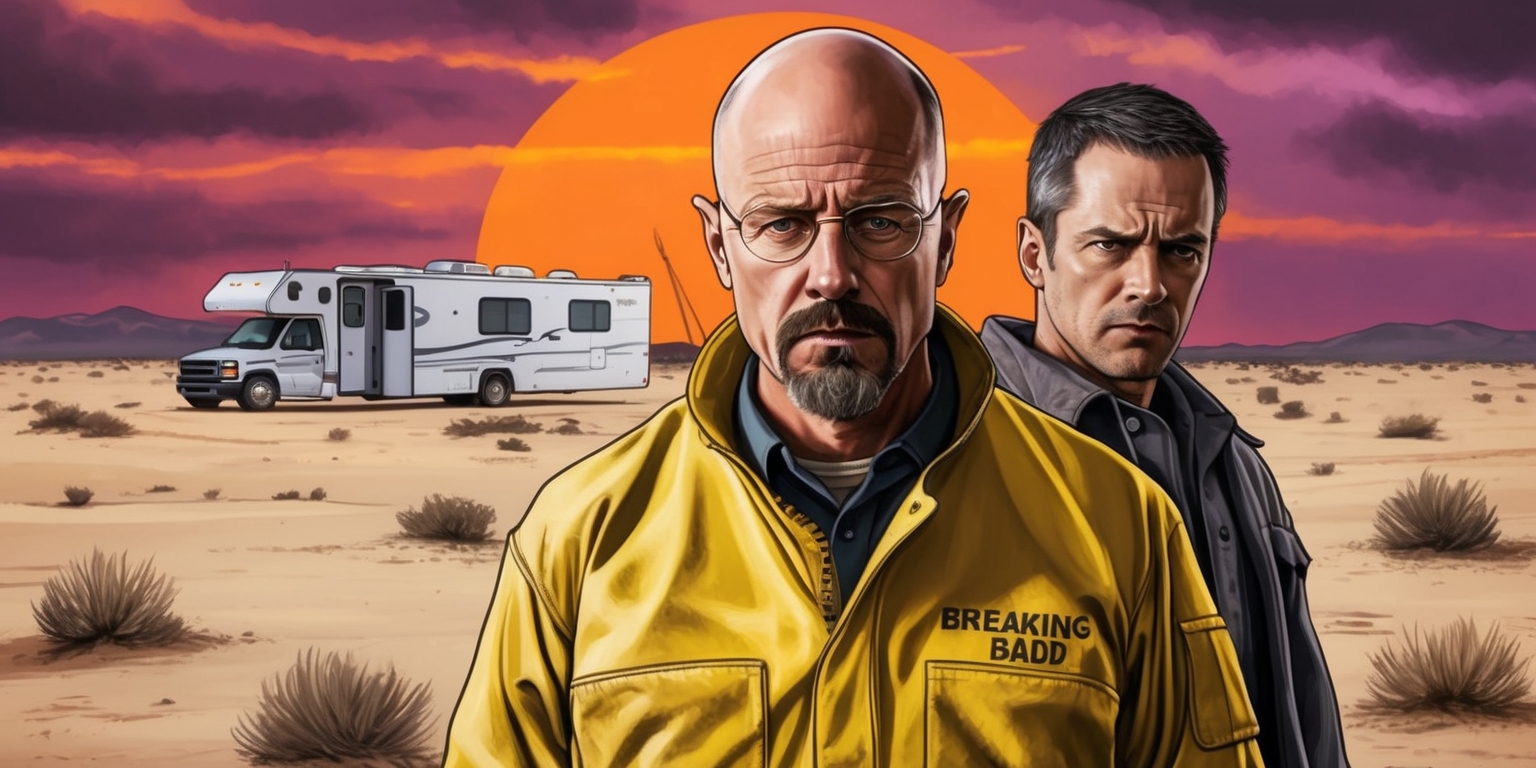- Ryan Gutierrez
- 16 Dec 2024

The Unwritten Legacy: Reimagining Breaking Bad's Sixth Season
In the constantly changing realm of TV, only a handful shows have etched themselves into the cultural consciousness quite like Breaking Bad. As a pioneer that blurred the lines between hero and villain, it set new standards for storytelling, character development, and narrative complexity. Created by Vince Gilligan, the series follows the evolution of Walter White, a chemistry instructor who transitions into a manufacturer of methamphetamine. As the original series has reached its conclusion, fans are left to ponder what a sixth season could have entailed, especially as Gilligan contemplated alternate endings that could have reshaped the narrative. This exploration delves into the fictional possibilities that might have emerged in Breaking Bad's missed sixth season and reflects on the significance of such storytelling decisions.
Unfinished Business
Though Breaking Bad is praised for its tightly woven plot and characterization, many fans feel there was more to its story than what appeared on screen. The thought of a sixth season sparks curiosity—a notion that the saga of Walter White could have continued to unfold in ways that would challenge and engage its audience even further.
Gilligan's Vision
Vince Gilligan's understanding of his characters and story arc is notable. He recognized Walter's transformation from a regular individual to a lawbreaker mastermind and had myriad concepts on how to extend that journey. As he navigated the concluding phases of the series, he considered multiple endings that could provide a fresh perspective on Walter's character and impact the show's legacy.
Envisioning a New Life for Walter
One particularly intriguing idea involved Walter finding a semblance of normalcy in his life post-crisis. Gilligan envisioned a story thread where Walter White would escape his chaotic past, remarry, and even teach chemistry at a community college. This concept, although ultimately unproduced, hints at the potential for growth, redemption, and the struggle of a man trying to outrun his past.
From Drug Lord to Educator

Imagining Walter White as a chemistry teacher once more poses an interesting contrast to his alter ego Heisenberg. This role reversal could serve to critique the education system and the moral implications of Walter's choices while allowing for moments of introspection about his previous actions. Such a narrative could delve into the challenges he would face as he attempts to live a 'normal' life, while always being haunted by his past decisions.
The Spin-off Potential
While often bringing closure, the series finale left some questions lingering—ones that could have birthed a successful spin-off. An alternate series could have followed Walter’s new journey in a different city, cleverly interweaving threads from Breaking Bad with fresh characters and conflicts. This would maintain the universe's tension and allow for deeper exploration of Walter's psyche.
Legacy and Impact
The cultural impact of Breaking Bad cannot be overstated. Its storytelling prowess cemented it as a benchmark for quality television. Had it aired in today’s entertainment ecosystem, plagued by immediate viewership metrics and short attention spans, it would have faced drastically different challenges. Producers might have sacrificed a well-crafted narrative for rapid fan service and algorithmic growth.
The Changing Landscape of Television
The entertainment landscape has transformed dramatically, often prioritizing quick returns over in-depth narratives. Breaking Bad thrived in an era that allowed slow-burn storytelling and character development that could push boundaries. The immediacy of modern streaming demands puts pressure on shows that would require the nuanced pacing Breaking Bad initially employed.
The Netflix Effect
Interestingly, the show experienced a monumental resurgence thanks to Netflix. During the gap between Seasons 4 and 5, Netflix introduced a new audience to the series, propelling its viewership from under two million to an astounding ten million by the end of Season 5. This allowed Breaking Bad to solidify its position as one of the most beloved series of its time.
Impact of Streaming Services
In the face of streaming giants, many series—regardless of their potential—have become casualties to the demand for immediate success. Shows like The Acolyte faced hurdles that emphasized a more palatable, quick-turnaround narrative rather than genuine storytelling, raising questions about the fate of well-crafted tales amidst a profit-driven environment.
Maintaining Quality Amidst Demand
The intricate equilibrium between audience anticipation and artistic vision vision poses a complex challenge for modern creators. For many, including Gilligan, the storytelling ethos rooted in quality and character depth often finds itself at odds with the demand for instant gratification from viewers.
Exploring Untapped Themes
Had Season 6 come to fruition, it could have explored several untapped themes—the moral consequences of Walter's decisions, the continuing impact on his family, and the ethical dilemmas of a society drawn to criminality for survival. Each of these themes holds potential for rich storytelling and character evolution.
Conclusion: A Reflective Journey
Years after breaking into the television scene, the legacy of Breaking Bad lives on. It captures not just the story of Walter White but a revolution in television itself. The contemplative ideas Gilligan had for Season 6 remind us that sometimes, the greatest stories go unwritten. In this landscape of fleeting entertainment, the richness of a well-crafted narrative should always be celebrated, whether concluded on screen or left to our imaginations. Breaking Bad's allure lies in its ability to provoke thought—to challenge viewers to consider the intricacies of human behavior, ethics, and the consequences of one's choices long after the screen goes dark.
Leave a comment
Your comment is awaiting moderation. We save your draft here
0 Comments